Adaptation of water resources management to climate change
Adaptation of water resources management to climate change
Adaptation of water resources management to climate change
You also want an ePaper? Increase the reach of your titles
YUMPU automatically turns print PDFs into web optimized ePapers that Google loves.
adaptation has focused on a <strong>to</strong>p-down approach and relatively neglected local and regionalperspectives and capacities. The planned adaptation approach will require a significant capacityfor policy-making and <strong>management</strong> innovation. Unfortunately, many countries do not have theCLIMATE CHANGE AND VULNERABILITY IN WEST AFRICAAt the Regional Dialogue on Water, Wetlands and Climate Change in West Africa, held in November2002, participants concurred that the 1970s marked a turning point for the region in terms <strong>of</strong> <strong>water</strong><strong>resources</strong> availability. Since that time, rainfall has decreased across the entire region, with the largestdeclines in the north. Several large river and lake systems, including the Soko<strong>to</strong> River system innorthwestern Nigeria, have suffered significant reductions in river flow as a result <strong>of</strong> lower rainfalland higher rates <strong>of</strong> evapo-transpiration.According <strong>to</strong> the Intergovernmental Panel on Climate Change, West Africa is projected <strong>to</strong> experienceabout a 1°C warming over the next 50 years. Climate <strong>change</strong> may substantially affect irrigationwithdrawals because <strong>of</strong> higher temperatures and greater evapo-transpirative demand greater evapotranspiration.The success <strong>of</strong> rain-fed agriculture in the region depends much on the onset andcessation <strong>of</strong> monsoon rain. There is great deal <strong>of</strong> uncertainty about how <strong>climate</strong> <strong>change</strong> will affectmonsoon dynamics. In a majority <strong>of</strong> West African countries, river run-<strong>of</strong>f is expected <strong>to</strong> decrease, asis the amount <strong>of</strong> <strong>water</strong> available for activities downstream <strong>of</strong> dams. Many vec<strong>to</strong>r-borne diseases thatare prevalent in West Africa, such as dengue and malaria, are expected <strong>to</strong> increase their geographicrange.Floods contaminate down<strong>to</strong>wn Franklin, VA with oil14


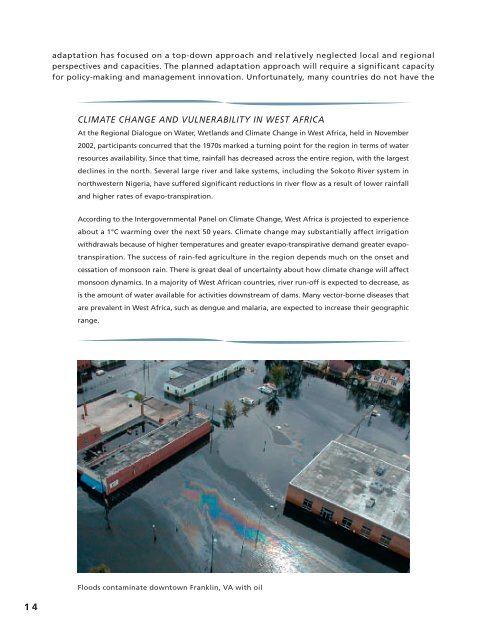
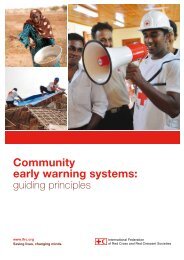
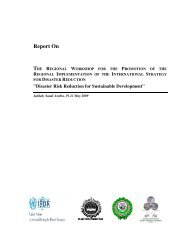
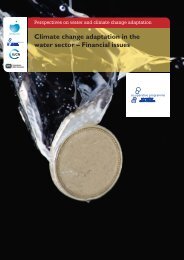
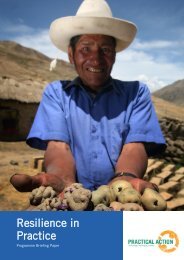
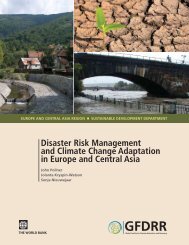
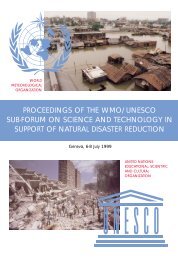


![View full document [PDF 988.55 KB] - PreventionWeb](https://img.yumpu.com/47733942/1/184x260/view-full-document-pdf-98855-kb-preventionweb.jpg?quality=85)
![View full document (in French) [PDF 4.96 MB] - PreventionWeb](https://img.yumpu.com/47223870/1/184x260/view-full-document-in-french-pdf-496-mb-preventionweb.jpg?quality=85)

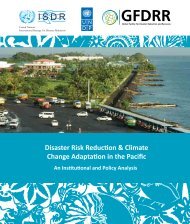
![View full document [PDF 25.02 MB] - PreventionWeb](https://img.yumpu.com/44204570/1/190x234/view-full-document-pdf-2502-mb-preventionweb.jpg?quality=85)
